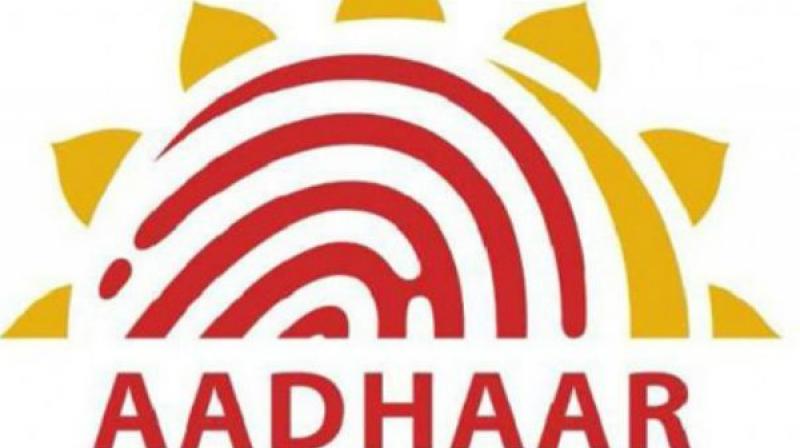One Off: What do you really get out of Aadhaar? Little
No other country doubts its citizens as much as India. No document is enough to prove that you exist, or that your existence is authentic.

Last week, minister for state for information technology and tourism K.J. Alphons said that Indians in general had no problem stripping at the immigration controls of a rich Western nation, or parting with any data, but that we are up in arms against our own government when it comes to Aadhaar. A section of the press quoted him as saying: “I filled up to 10 pages for the US visa form. We have absolutely no problem giving our fingerprints and getting the body naked before the white man at all. When your own government asks for your name and address, there is a massive revolution, saying it is an intrusion of privacy.” He is partly right. But that’s also because when it comes to a foreign nation Indian citizens have no choice but to comply with the white man’s demands. But in his own country the Indian citizen surely has the right to raise questions that bother him about Aadhaar? The Aadhaar debate picked up last fortnight in the context of Cambridge Analytica’s unauthorized use of Facebook data in the American elections, and reports of Aadhaar data being open to misuse owing to fresh security lapses. On Monday, however, the matter regarding user data — which is what the Aadhaar debate is all about — exploded all over once again, with Rahul Gandhi alleging that the NaMo app shared collected data with a US-based firm.
The BJP said the privacy policy of the app stated that “information may be processed by third party services”. The BJP later amended the privacy policy to say that “certain information may be processed by third party services to offer you the most contextual content in your language”. The BJP then rounded up on the Congress. The party said the WithINC app of the Congress Party transmitted data that could be easily decoded. The Congress promptly deleted its app. So much for data privacy. The fact is that no electronic data is safe from misuse. Which is why what Mr Alphons said about Aadhaar is not quite just a matter of patriotism or the worship of the white man. For long I have harboured reservations against Aadhaar. Social media platforms like Facebook and search engines like Google already have in their database just about everything we have done or are hoping to do since our birth. In fact, in the important work Homus Deus, Yuval Noah Harari talks about a world in the near future driven by algorithms.
As I type this, on the top right hand corner there is box trying to sell me a Rolex watch because I had looked at the price of one the week before. When I check cinema sites or YouTube, I am offered movies and documentaries on World War II, lectures on the beginning of the universe, and boxing, as I am interested in these subjects. The Internet perhaps knows you better than your spouse. Your bank and your credit card agency know your credentials as a borrower, or a spender. Your sexual predilections can be figured from your browsing history. Recently, Facebook bought over WhatsApp. That just means your chats are subject to surveillance as well. In future, there will be more such mergers. Which means a few monopolies will be eventually able to run your life. Indeed, the eye in the sky sees it all. And what it sees can be bought. Every one of your wishes has an economic value that will kick in sooner or later. You have exchanged your private life for a smart one. That is the price a world hurtling towards full automation exacts.
When the right time comes, what you said or did could be used against you too, by a government or a corporate firm. Information is a double-edged sword. That much is given. So then, if the government makes Aadhaar a condition of your life as an Indian in India, and passes it off as vital to your interests, you know what you are in for. It’s not as if the government doesn’t have enough data on you already. Your passport, for example. The new passports are all biometric. Your driver’s licence for another. Also biometric. Your smart ration card. Your smarter voter ID. All these documents have all your details. If they don’t in one or two respects, a central server somewhere in Mr Alphons’ ministry could run a check, and connect all the dots. Alternatively, any one of these documents can be upgraded so that the information is centralised. Why, yet again, another card?
No other country doubts its citizens as much as India. No document is enough to prove that you exist, or that your existence is authentic. Every few years, a new document is demanded. It’s a bit like a man doubting if his girlfriend loves him enough. A state of mild but persistent paranoia.
A perennial identity crisis: are you Indian? Are you Indian enough? And to think that any document validating your Indianness, unlike, say, an American or British passport, gets you few privileges. In a smart, data-driven world, it is unrealistic to expect you get to keep your secrets: your secrets are what is funding the world. But you would be justified in asking how many times you must submit yourself to be electronically frisked, when you are more or less already naked. Mr Alphons’ equating the US visa application forms to yet another biometric card as a condition for an Indian’s official existence is one of those things very close to asking a minority community member to prove his patriotism every waking day. If the government showed half as much persistence in governance as its need for public surveillance, it probably would have much less difficulty in getting people to line up before a window to cough up personal data. Very often comparisons are made with the US social security card and how Americans have no problems applying for one. But the social security card assures an American citizen exactly that: social security.
All your life you have been paying nearly 30 per cent of all you have earned to the government as tax. This is in addition to all other taxes and surcharges. But on the day you cease to earn a living, the State effectively severs its ties with you. That’s the difference between Aadhar and the US social security card. If Mr Alphons can assure me that Aadhaar will buy me social security, I wouldn’t mind another card in my wallet. Filling a US visa form is likely to benefit me; and it’s my choice. Aadhaar is without choice. The question here really is not about yet another piece of plastic that is thrust upon you. The question is: what does the citizen get out of the exercise? And the answer is: very little.

